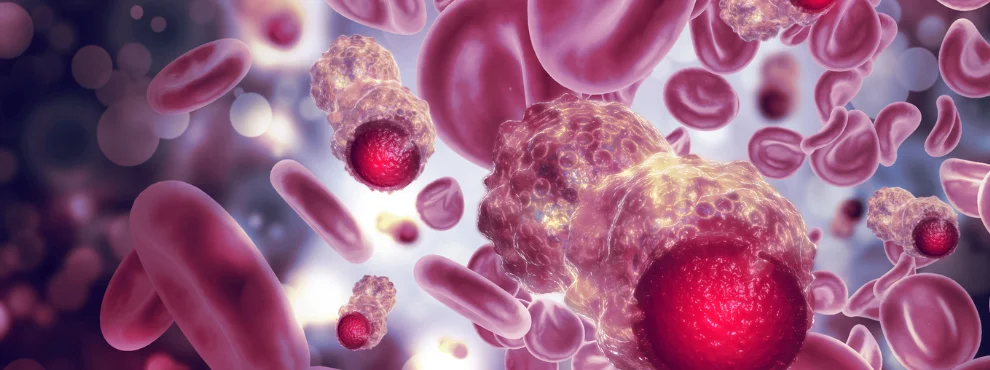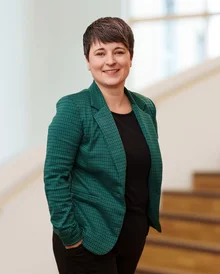Cancer therapy: men and women react differently - a new study investigates this
The University of Witten/Herdecke and the Ruhr University Bochum are investigating how gender influences the effectiveness of modern cancer therapies.

Modern immunotherapies are considered a breakthrough in cancer treatment: highly effective, but also complex and expensive. Initial studies indicate that men and women respond differently. A research team from Witten/Herdecke University (UW/H) and Ruhr-Universität Bochum (RUB) has been systematically investigating this correlation since 1 July 2025 - funded by the Federal Ministry of Research, Technology and Space. For the first time, not only scientists are conducting research, but also patients themselves.
Focus on targeted immunotherapies: effective, but with risks
Two modern forms of therapy are at the centre of the study: CAR T-cell therapy and so-called T-cell engagers. Both utilise T cells, i.e. the body's own white blood cells, to specifically combat cancer cells. In CAR T-cell therapy, T-cells are taken from the blood, modified in the laboratory and re-administered as targeted "cancer fighters"; they remain in the body and have a long-term effect. T-cell engagers, on the other hand, are antibodies that direct T-cells specifically to the tumour cells in order to destroy them. Their effect is usually limited in time.
"These therapies have great potential, but are cost-intensive and are sometimes associated with considerable side effects," says project leader Prof Dr Sven Schmiedl from the Chair of Clinical Pharmacology at UW/H. "We need to understand how biological sex influences the effect so that we can provide more targeted treatment."
Differences in effect and side effects - but the overall picture is missing
Individual studies suggest that men, for example, suffer more frequently from side effects, but also benefit more from successful treatment in some cases. Women, on the other hand, often tolerate the therapies better, but in some studies perform worse in terms of efficacy. A systematic evaluation of all available data is still lacking - this is precisely where the research project comes in, as Dr Blasius Liss, who supports the project as a clinical expert and works as an oncologist at the Helios University Hospital in Wuppertal, explains.
A comprehensive systematic search of studies that have already been carried out and a meta-analysis based on individual patient data from these studies are planned. The aim is to visualise gender-specific differences in efficacy, side effects and quality of life.
Research with those affected: Patients contribute their own perspective
Two patients - a woman and a man - are accompanying the project as co-researchers. They are involved in the development of questions, the evaluation of the studies, the discussion of results and the development of comprehensible information materials.
"Especially when it comes to topics such as quality of life, exhaustion or long-term stress, it is crucial to include the perspective of those affected," explains Prof Dr Nina Timmesfeld, Head of the Department of Medical Informatics, Biometry and Epidemiology at RUB. "They can provide valuable information about what really matters in healthcare - beyond medical indicators."
Does the dosage make a difference?
Differences in body weight, body composition and body surface area could also play a role. This is because some active ingredients are administered regardless of body weight, while others are dosed according to weight. Whether this leads to gender-specific effects in practice has hardly been researched to date.
"We are also interested in uncovering potential blind spots - for example, when dosage recommendations apply to everyone, although they do not apply equally to men and women," emphasises Prof. Dr Petra Thürmann, Vice President for Research at the UW/H and an expert in sex- and gender-related drug therapy. "This could provide starting points for a more individualised and safer therapy."
Making science usable for practice
The results are to be published in scientific journals, presented at congresses and made accessible to the public. A project website and information material for patients are also planned.
In the long term, the findings are to be incorporated into medical guidelines - especially if it turns out that gender-specific dosing or monitoring makes sense. "We want to provide clinically relevant information that will help doctors and patients make better decisions," says Schmiedl. "Because the goal is a cancer therapy that is as individualised as the people it affects."
Contact person

Lucy Mindnich, M. A.
Communications Officer
Administration | Communication & Marketing
Alfred-Herrhausen-Straße 48
58455 Witten
Room number: 2.F05